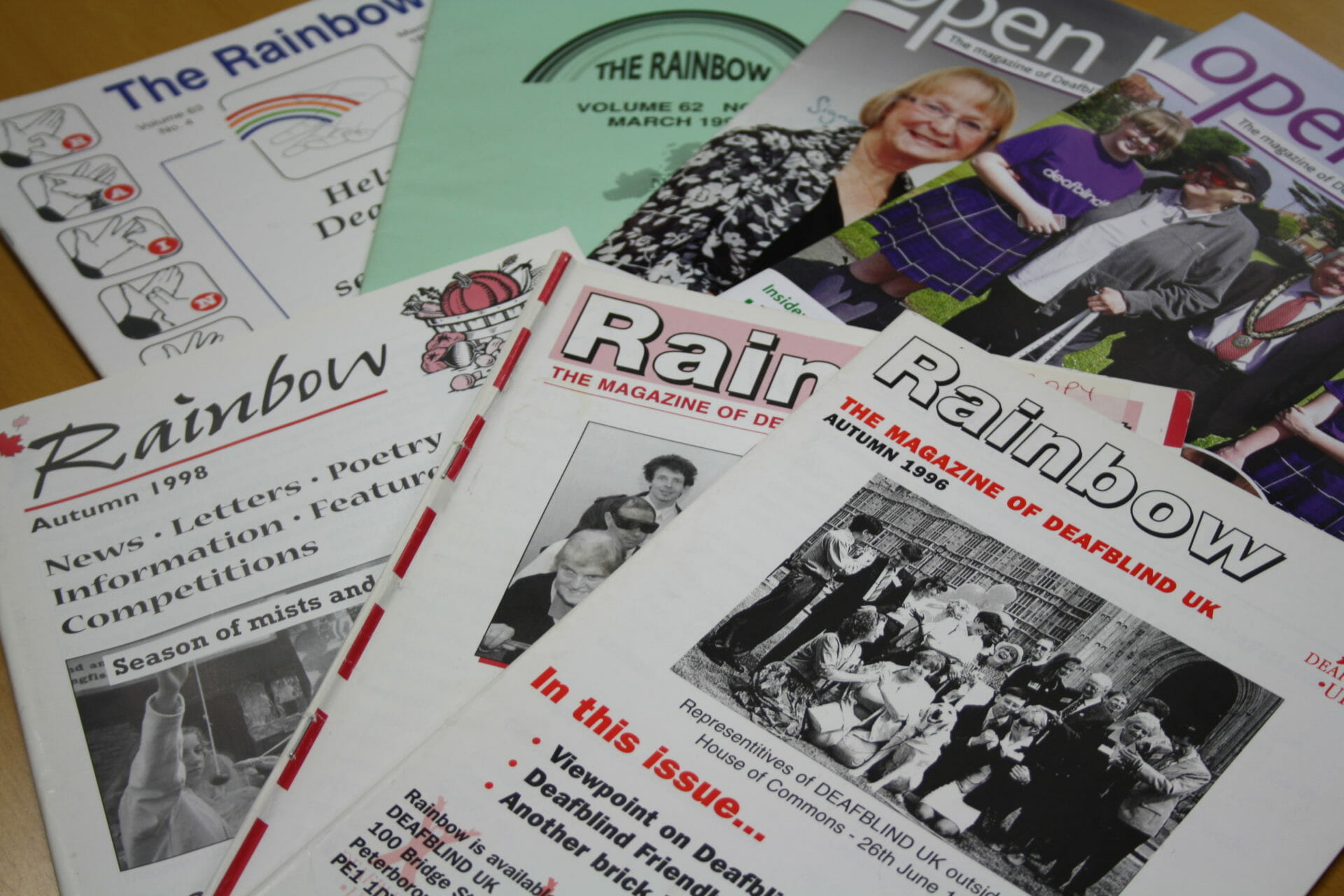Our vision – is to create a world where people living with deafblindness thrive, empowered by knowledge, support and equity.
Our mission – is to enable people living with deafblindness through holistic care and assistance, pioneering research, transformative education, influential advocacy, and innovative technology integration.
Our strategy
Deafblind UK is a membership organisation for and led by people who are deafblind. This strategy has been shaped and informed by their views, experiences and opinions. We have also learned from the experience gained by our staff and volunteers who support people who are deafblind.
Five pillars of support
Our dream is to provide personalised and specialised support for everyone who needs it, at every stage of their journey. To do this, we focus on five key pillars of support:
- Improving support and information for people who are impacted by deafblindness and for professionals who work with people who are deafblind.
- Educating others including those who are impacted by deafblindness and the wider local, national and international communities.
- Researching deafblindness to better understand the condition and identify interventions that will improve the lives of those affected by deafblindness.
- Influencing the decision makers for the benefit of those impacted by deafblindness and their communities.
- Supporting the use of technology for people who are deafblind and for those who work with people who are deafblind.
Our Values
Communication
We will always endeavour to communicate with people using their preferred language or method. We will communicate frequently, be open and honest and ensure the message we are communicating is clear, concise and will not cause offence.
Excellence
We will do our very best in all we undertake. We will work collaboratively and take responsibility for the outcomes. We will aim to inspire, take a pride in what we do and deliver our services efficiently and effectively.
Person centred
We will listen to the people we support and deliver services that best meet their individual needs and empower them to live the lives they choose. We will treat everyone with dignity and compassion.
Respect
We respect people for who they are and for their knowledge, skills and experience as individuals and team members. We will respect each other’s views and opinions, and when necessary challenge constructively, positively and politely.
Articles of Association
Deafblind UK has the following objects in our Articles of Association which determine that the purpose of our charity is to support and enable people who are deafblind to live the life they choose by;
- Providing support workers, and support and training to our support workers
- Providing specially designed or adapted housing, and items, services or facilities
- Promoting social inclusion by:
- providing education and information to support and enable deafblind people to integrate into society
- raising public awareness of the issues affecting deafblind people, both generally and in relation to their social exclusion
- providing social groups, forums, advocacy and general support
- providing recreational facilities and opportunities for deafblind people
Deafblind UK currently supports people in England, Wales and Northern Ireland. If you or someone you know needs our support, please contact us.

